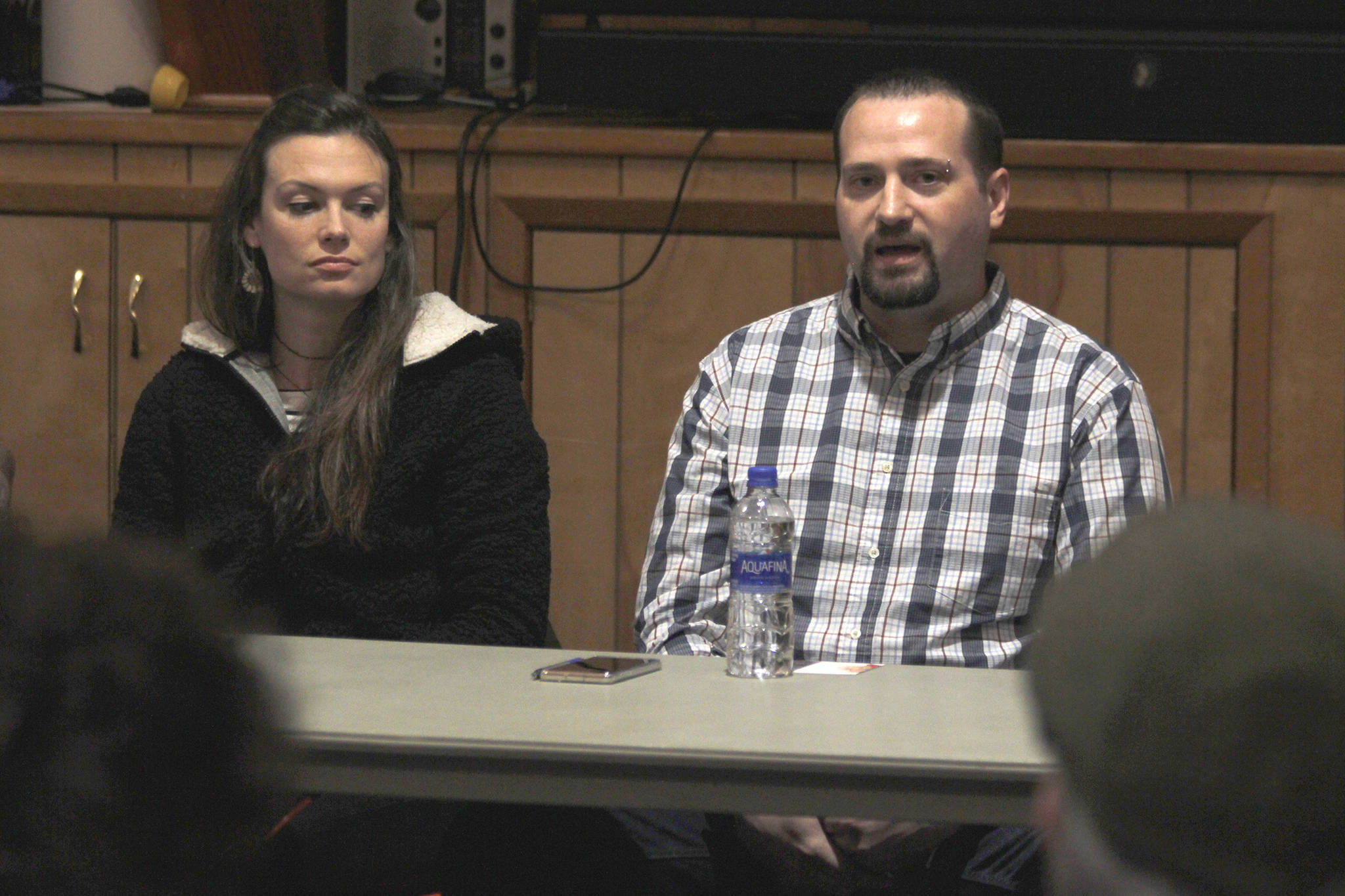While much of the public conversation about criminal reform measure Senate Bill 91 comes from politicians, a talk Saturday night featured a different demographic — those who have been in the system and who have benefited from the bill.
At an event called “Stories of Hope,” organized by students at the University of Alaska Anchorage Master of Social Work students, a small group of attendees gathered at Northern Light United Church and listened to the accounts of three people who had firsthand experience with the criminal justice system. The stories were raw as they delved into their childhood traumas and adult struggles, but all three tales led to optimistic endings.
SB 91 helped them all get back on their feet sooner than they otherwise would have, they said. Mike Van Linden, a re-entry case manager for JAMHI Health and Wellness, was able to get a temporary driver’s license after his felony DUI as part of SB 91, he said in his talk. Being able to get that, he said, helped him get a job and function better than he otherwise would have.
[To repeal or not? Statewide crime commission hoping for feedback on SB 91]
Van Linden, who is in long-term recovery, has become a prominent figure in town when it comes to re-entry and recovery. He’s aware of the criticisms of SB 91 and the strong emotions behind property crime in the state, but he’s also had a front-row seat to ways the bill is helping reduce recidivism rates in the state as well.
SB 91 has been a hot-button issue since it was signed into law in July 2016. Social media feeds light up with images of crimes and complaints about how the bill is at fault. Many politicians, including Gov. Mike Dunleavy, have called for a full repeal of the bill. Other politicians have called for changes to the bill and not a sweeping repeal.
To the people who are calling for a repeal, Van Linden preached patience.
“I would say give it a chance and look at the numbers,” Van Linden said. “Look at the data without being emotional.”
It’s proven difficult to tie statistics, positive or negative, to SB 91. Proponents have said it takes time for criminal justice reform bills to really start paying dividends.
Crime rates across the state were already rising prior to SB 91’s implementation in 2016, a trend many experts have linked to an influx of opioid drug use in the state. Crime rates have remained high in many cases, but it’s not clear how much of that is due to the criminal justice reform bill.
Recidivism rates have declined for the past two years and Van Linden said he thinks they’re poised to keep dropping in the next couple years with criminal justice reform measures in place.
Van Linden has also seen the Juneau Therapeutic Court begin to thrive. When he went through the program — which offers an alternative to going to prison for those with drug and alcohol offenses — it wasn’t very full, he said. Since the implementation of the Pretrial Enforcement Division and other SB 91 changes, the program has filled out and it has produced success stories, he said.
Kevin Enloe, a UAA Master of Social Work student who was one of the organizers of the event, talked about his 16 years of prison experience Saturday and said he’s finally off probation now as a result of SB 91.
“It changed my life, and now I’m dedicating it to giving back and to helping other people,” Enloe said.
Carrie Amott, a peer support coordinator at JAMHI Health and Wellness, was the first person to speak Friday and said SB 91 also allowed her to get back to driving after a felony DUI. That helped her get back on track and find a job, she said.
She and Van Linden were adamant that there need to be more treatment options, both for those in prison and outside. Enloe pointed out that there should be more incentives in place for people to get into treatment.
Van Linden repeated his “give it a chance” mantra multiple times, and said that if people are stuck in the criminal justice system forever and can’t get access to treatment, they and their families both suffer.
“I get punishing people for their crimes,” Van Linden said, “but the reality is, justice shouldn’t create more victims.”
• Contact reporter Alex McCarthy at amccarthy@juneauempire.com. Follow him on Twitter at @akmccarthy.

